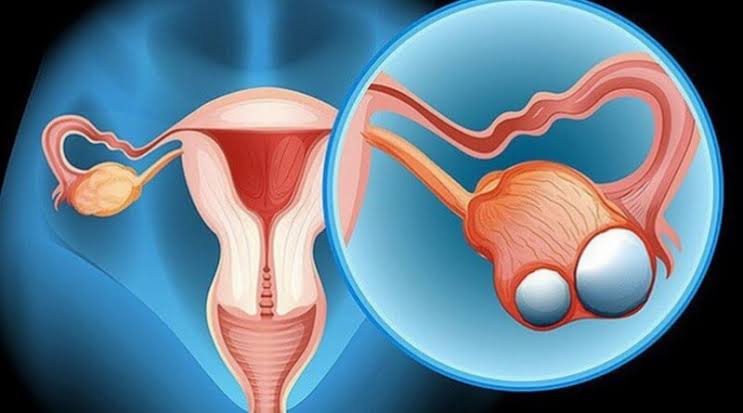Ovarian cysts are fluid-filled sacs that can develop within or on the surface of a woman’s ovaries. They are relatively common and often harmless. Ovarian cysts can vary in size and may come and go on their own.
Most cysts are functional, meaning they develop as part of the normal menstrual cycle and typically resolve without treatment.

What are ovarian cyst and their symptoms
However, some cysts can cause pain, discomfort, or other symptoms and may require medical attention.
In rare cases, ovarian cysts can be cancerous. If you suspect you have an ovarian cyst or are experiencing symptoms like pelvic pain or irregular periods,
it’s important to consult a healthcare provider for proper evaluation and management.
What are the symptoms of ovarian cyst:
The symptoms of ovarian cysts can vary depending on the size, type, and location of the cyst. Some women with ovarian cysts may experience no symptoms at all, while others may have the following symptoms:
1. Pelvic Pain: This is one of the most common symptoms. The pain can range from a dull ache to sharp, severe pain, and it may come and go with the menstrual cycle.
2. Pelvic Pressure: Women with large cysts may feel a sensation of fullness or pressure in the lower abdomen.
3. Bloating: Some women with ovarian cysts may experience abdominal bloating or a feeling of abdominal distension.
4. Irregular Menstrual Periods: Cysts can affect the menstrual cycle, causing irregular or heavy periods.
5. Painful Intercourse: Cysts may cause discomfort or pain during sexual intercourse.
6. Frequent Urination: If a cyst presses on the bladder, it can lead to increased frequency of urination.
7. Difficulty Emptying the Bladder or Bowels: Large cysts can put pressure on nearby organs, causing difficulty in emptying the bladder or bowels.
8. Nausea and Vomiting: This can occur if a cyst twists or ruptures, causing sudden, severe pain.
It’s important to note that many ovarian cysts, especially small ones, do not cause symptoms and are discovered incidentally during a routine pelvic exam or imaging tests. If you experience persistent or severe pelvic pain, sudden pain, or any of the symptoms mentioned above, it’s crucial to consult a healthcare provider for evaluation and diagnosis.
Treatment of Ovarian cyst
What is the difference between PCOD and PCOS and Risk Factors

2 thoughts on “What are ovarian cysts”